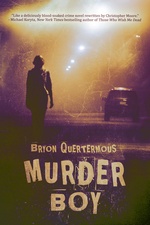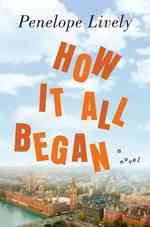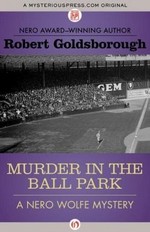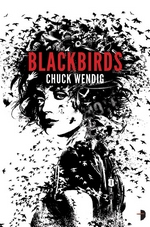by Robert Goldsborough
Paperback, 228 pg.
MysteriousPress.com/Open Road, 2014
Read: Jan. 25, 2014
Fool me once, shame on you. Fool me twice, shame on me. Fool me 5 times? You’re writing Nero Wolfe/Archie Goodwin novels and I just can’t help myself. When I was on page 19, I actually put in my notes, “if this book wasn’t about Wolfe and Archie, I wouldn’t read another word.” But it was about them, so I read the whole thing.
There’s no attempt at all to mimic Stout, his voice, pacing, etc. And this is a good thing — if you can’t do it successfully, it just comes across as bad (a recent example in another medium is the Dan Harmon-less season 4 of Community). Goldsborough came close with Murder in E Minor, which is why it’ll always be the book least likely to get him pilloried by anyone. But here he doesn’t even try — this is someone using familiar characters in his own voice, and that’d fine. I figure it’s like when Sammy Hagar got to stop singing songs written for David Lee Roth and instead focus on songs written for him — same band, but it came across very differently. When I was able to think of this as a Goldsborough novel rather than a non-Stout, it was a better experience. Not good, really, but better.
You read series to spend time with characters you like/love. That’s a given — and even when someone other than their creator is doing the telling, you can still enjoy them (see: most TV and comic series). But when they really don’t seem like themselves, it’s really not that fun to hang out with them. And that’s the biggest problem here — another voice, I think I could handle. If that voice got the characters right. And Goldsborough falls flat here (flatter than ever before, I think)
The book starts off with Archie and Saul at a ball game, when an important looking fellow comes in and sits a few rows ahead of them. Archie doesn’t know who he is, so Saul dumps a whole bunch of information on the gentleman — a state senator of some repute. Here I called foul for the first of many times — Archie reads, what, two papers every morning? Or is it three? (I don’t care enough at this point to do the five minutes of research it’d take to verify this). He doesn’t need for Saul “The Expositor” Panzer to fill him in on all these details in an uncharacteristically verbose way. Just a shameful way to use Saul, anyway.
The middle hundred (give or take) pages were so hard to get through. Archie and Wolfe talk to the three main suspects as well as five people close to the case and Inspector Cramer. Each and every one of them gave the exact same list of suspects (obviously the suspects left themselves out) — in the same order of likelihood — and then each of them (including the suspects) gave nearly identical reasons why each suspect should and shouldn’t be considered. It was just painful, you could practically sing along with the characters by the end. “Second verse, same as the first.”
I don’t want to get into specifics here, but I was less than a quarter of the way through the book when I saw the hinge on which everything turned. It was so obvious, it was annoying. I don’t expect Goldsborough to be as good as Stout (rarefied company anyway), but someone who’s read as many mysteries as this guy seems to have should’ve been better at hiding the solution.
Lastly, the dialogue was simply atrocious.
After said VIP is killed, Archie tells Saul.
I don’t want to be here when Inspector Cramer or, heaven forbid, his dull-witted, stuttering underling, Lieutenant George Rowcliff, shows up. Each of them would try to pin this on me somehow
What’s wrong with this? Sure, Archie might say “Inspector Cramer” here, rather than simply “Cramer,” but I doubt it. But there’s no way he rambles on with full name and rank of Rowcliff — period. And that lumbering “dull-witted, stuttering underling”? Pfui. Saul knows Rowcliff. Archie might put that in his narration, but he’s not going to do that in dialogue with his old pal.
Later, when asking how Archie learned something, Lily says,
Your old friend and poker-playing adversary Lon Cohen, no doubt.
No. No. No. Lily’s lines should sing. The banter between she and Archie should have zip. Not this tin-eared nonsense.
I could go on, but I won’t. Just one other way that Goldsborough refuses to respect the characters that made this series what it is.
When I was about halfway done with this book, I posted this to Facebook, and I think it sums things up pretty well:
Next time a Robert Goldsborough book comes out, I need as many of you as possible to whack my nose w/a rolled-up newspaper and tell me, “no.”
Probably won’t do any good, but it’s still the humane thing to do.
—–

 Murder Boy
Murder Boy File this one under “There’s no accounting for taste.” And by that, I mean mine. By all accounts, this is one that should’ve appealed to me. The premise promises something like The Wonder Boys meets Fargo and Koryta’s endorsement (among others) makes it seem like that promise is fulfilled.
File this one under “There’s no accounting for taste.” And by that, I mean mine. By all accounts, this is one that should’ve appealed to me. The premise promises something like The Wonder Boys meets Fargo and Koryta’s endorsement (among others) makes it seem like that promise is fulfilled. 










